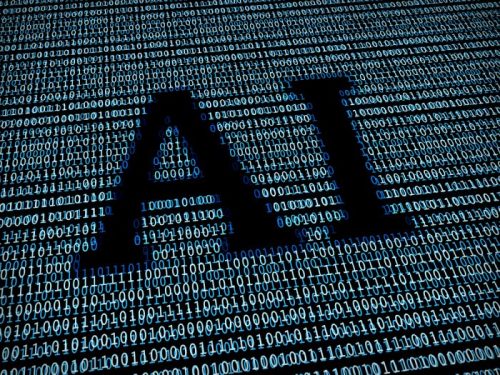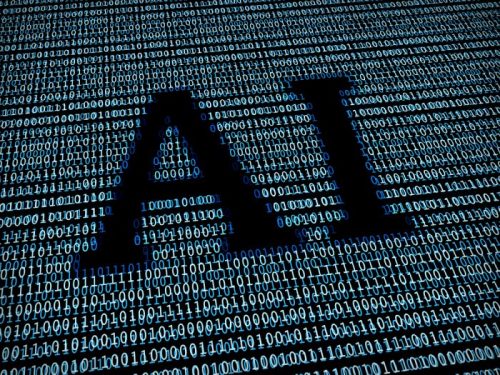Although the term “artificial intelligence” or AI has been popular for decades, recent discussions on “cognitive learning,” “cognitive computing,” and “cognitive algorithms” have made everyone more conscious of the implications AI has on our daily lives. AI is one of those topics that generate contradictory feelings. On the one hand, we are impressed by the concept. We are also enthusiastic about the opportunities AI can open up as it touches all kinds of lives. On the other hand, though, there is fear. The movie industry has played a crucial role in not only familiarizing AI but also creating catastrophic images about artificial intelligence in the minds of the general public. Think movies like “Artificial Intelligence” starring Jude Law, “Terminator” with Arnold, “Her” with the not-at-all-robotic-voice from Scarlett Johansson and “Ex Machina” and you know what I mean!

Some of the questions that everyone’s been asking are will AI take over humanity, replace humans, and kill us? Will it surpass human intelligence or mean massive job-loss?
The reality is that artificial intelligence is touching many sectors and digital marketing, or better yet, the marketing sector, is one of them. In this blog post, I will discuss every marketer´s hopes and fears about artificial intelligence and how it will influence our marketing decisions in the near future.
In a recent talk delivered by David Berkowitz during the IAB Conecta 2017 conference in Mexico City, David shared the results of a survey conducted amongst more than 200 marketing professionals regarding the role of artificial intelligence in marketing.
One of the questions in the survey was whether advertising agency managers would be replaced by robots. Only 3.9% of respondents thought that this job has a chance to be automated. Nevertheless, 17.5% of the respondents said that public relations specialists’ responsibilities would be automated.
The discussions on artificial intelligence are heating up. There are tons of data that need more processing power to get meaning out of it, and new algorithms need to be implemented.
So, digging deeper into the effect AI on marketers, here are some of the questions that have come up:
Do marketers understand AI? Only 46% seem to understand it.
Are marketers investigating the full potential of AI? Only 36% are doing so.
Why do marketers want to invest in AI?
The top two answers were that marketers want to use AI to increase productivity and efficiency. I found this strange because in these top responses there were no findings related to sales or marketing. Increasing sales was lower on the scale! This raises the question of what should be the main concern for a marketer? If a marketer had increasing sales as their main goal, then the top reason for investing on AI should have been to increase sales. But marketers seem to be more concerned about efficiency, productivity, and innovations, than sales!
Where would you most want AI applied in your organization?
The top answer was “customer service / CRM” which is more related to sales. “Competitive intelligence” was also a top-rated answer.
Obviously, as AI starts embedding itself into an organization, many areas will benefit according to the surveyed marketers. The top benefit would be in analysis, research, strategy, and planning. Two other areas mentioned include media buying and media planning.
How long will it be before AI makes a significant impact on their marketing activity?
In answer to this question, 22% of markets estimated 5 years, 19% said 2 years, and 18% believed AI will start impacting marketing in 3 years. More importantly, 61% of the marketers surveyed responded that some roles would be replaced by AI.
Marketers are not the only ones who fear being replaced by AI. 29% of software developers are anxious that they could be replaced by AI as well.
So, what can marketers prepare themselves?
When facing this challenge, it is a good exercise to go back to the times when chess players were almost rock stars. Then a threat appeared in the form of Deep Blue, the computer program capable of playing chess. But the human race needs to be challenged to rise to new standards, and the advent of Deep Blue not only did not win over humans, but it also ended up creating better chess players! In fact, there are more than twice as many grandmasters now as there were when Deep Blue beat Kasparov!
Without any doubt, there will be marketing jobs that will be replaced by AI, but many others will also be created, as it’s already happening today. The difference between being replaced or being elected for the new roles is entirely a choice of each marketer. Some jobs are more prone to replacement by automation than others. Learning to configure, manage, operate, interpret and program AI platforms will be a highly demanded skill, but there is a price to pay: moving out of the comfort zone, learning the new technologies and take advantage of the opportunities.
For the next several years, technologies will augment what marketers can do, and all marketers should embrace them and become knowledgeable about them if they want to remain competitive and help their brands become competitive as well.






